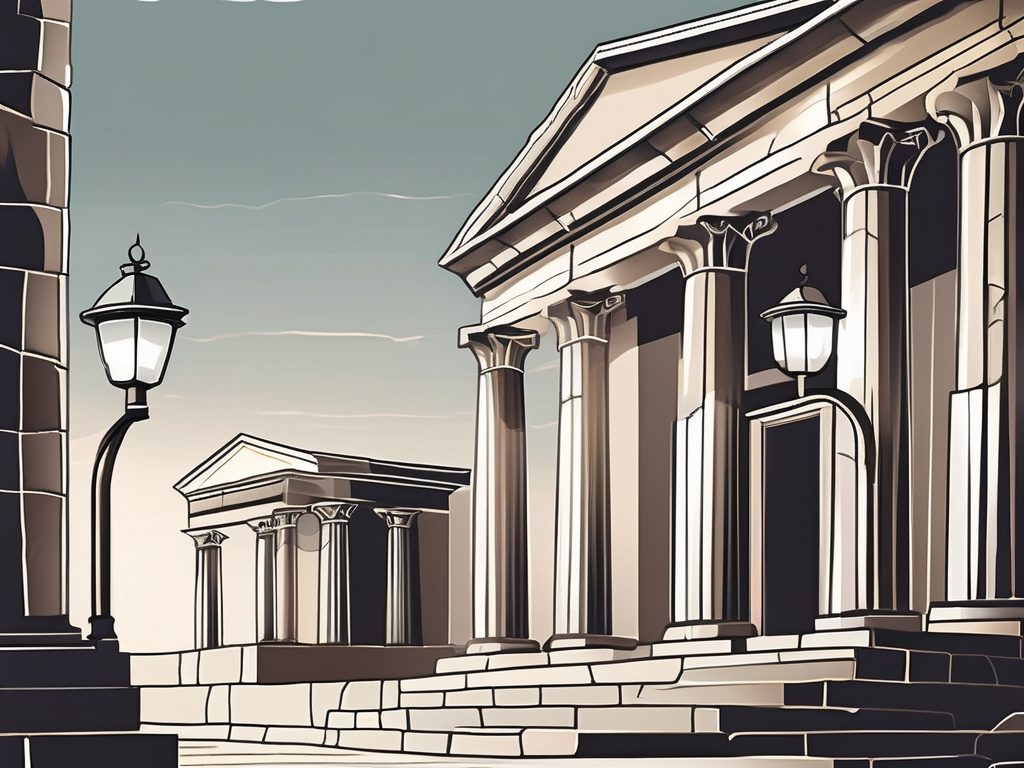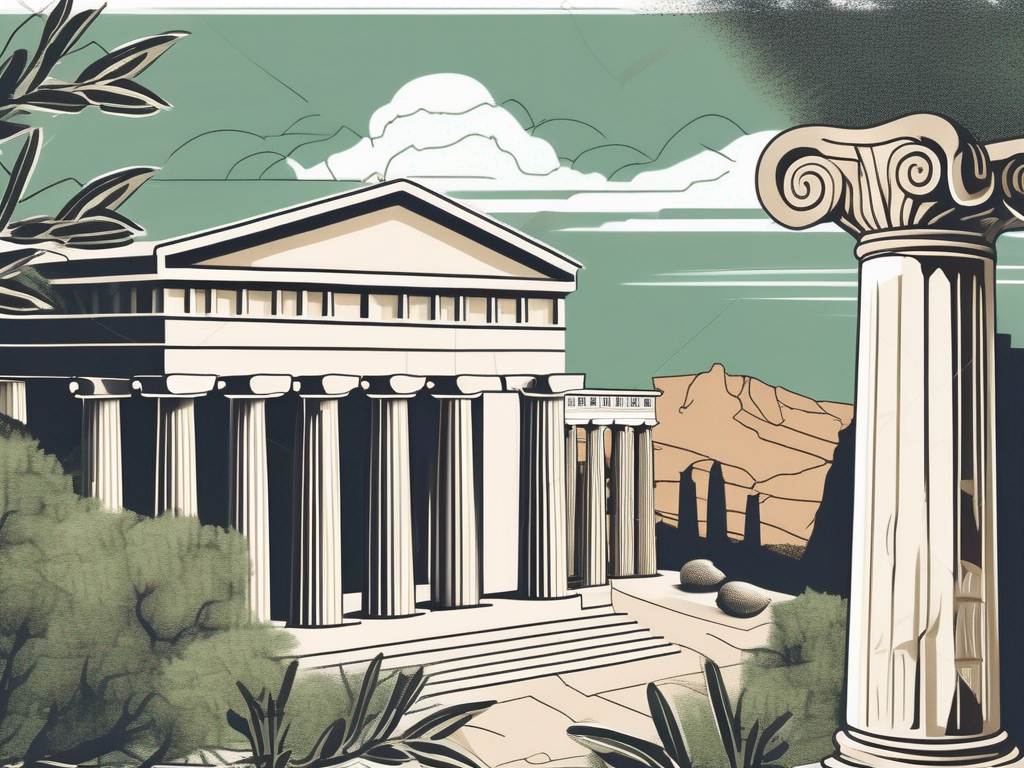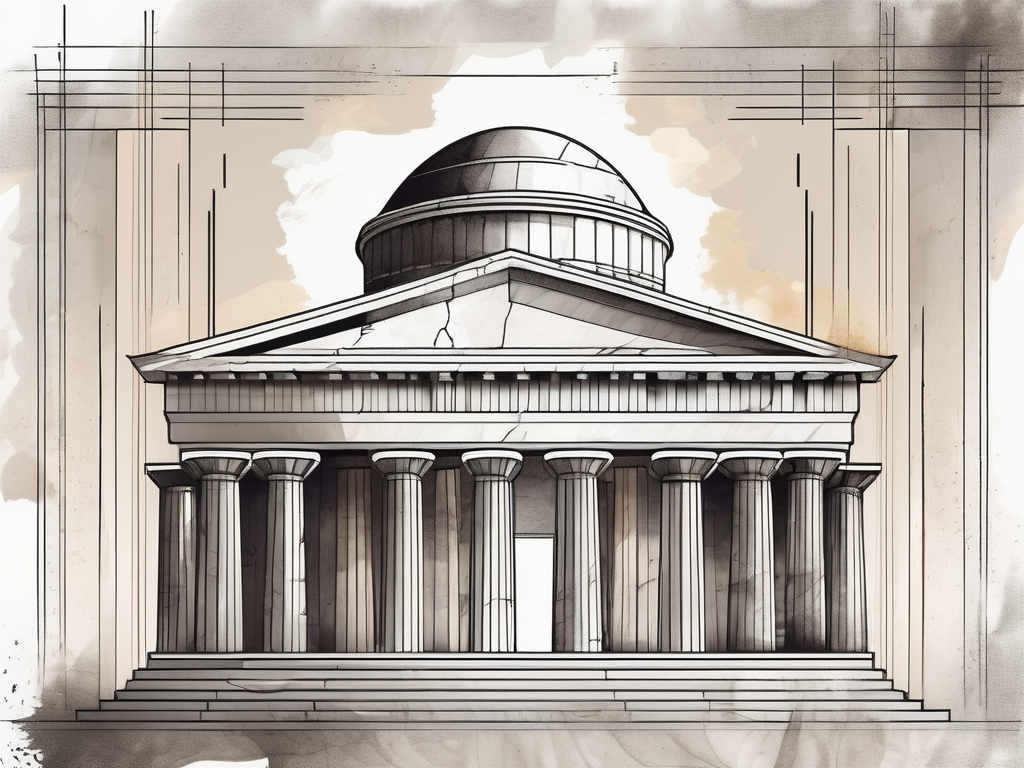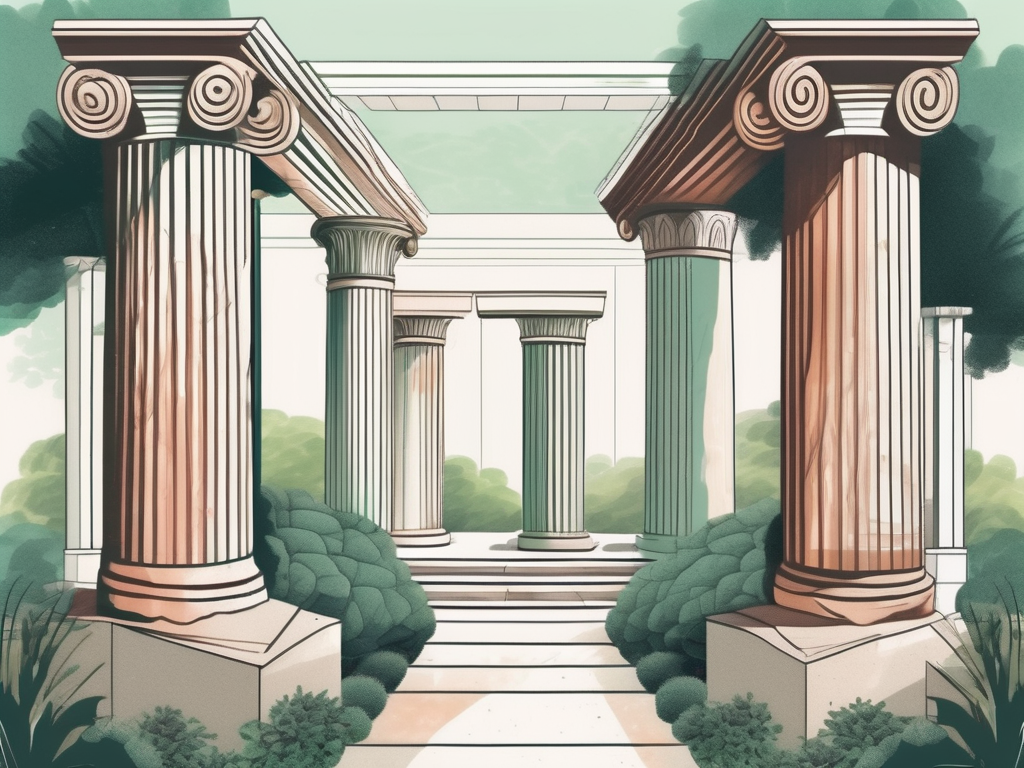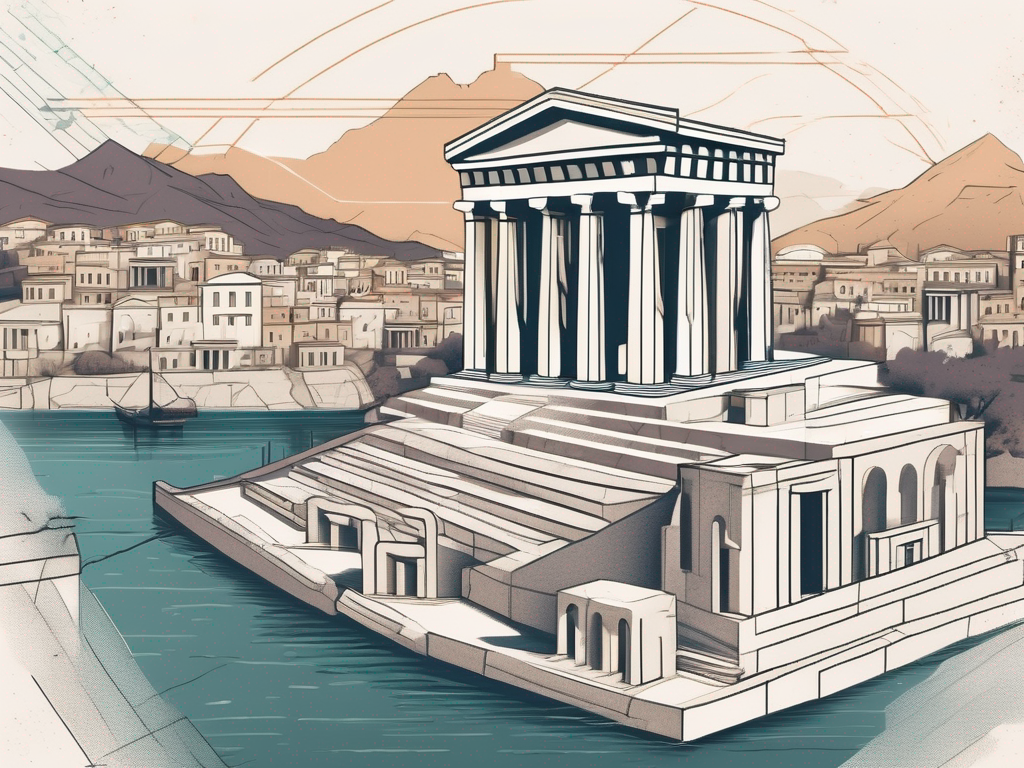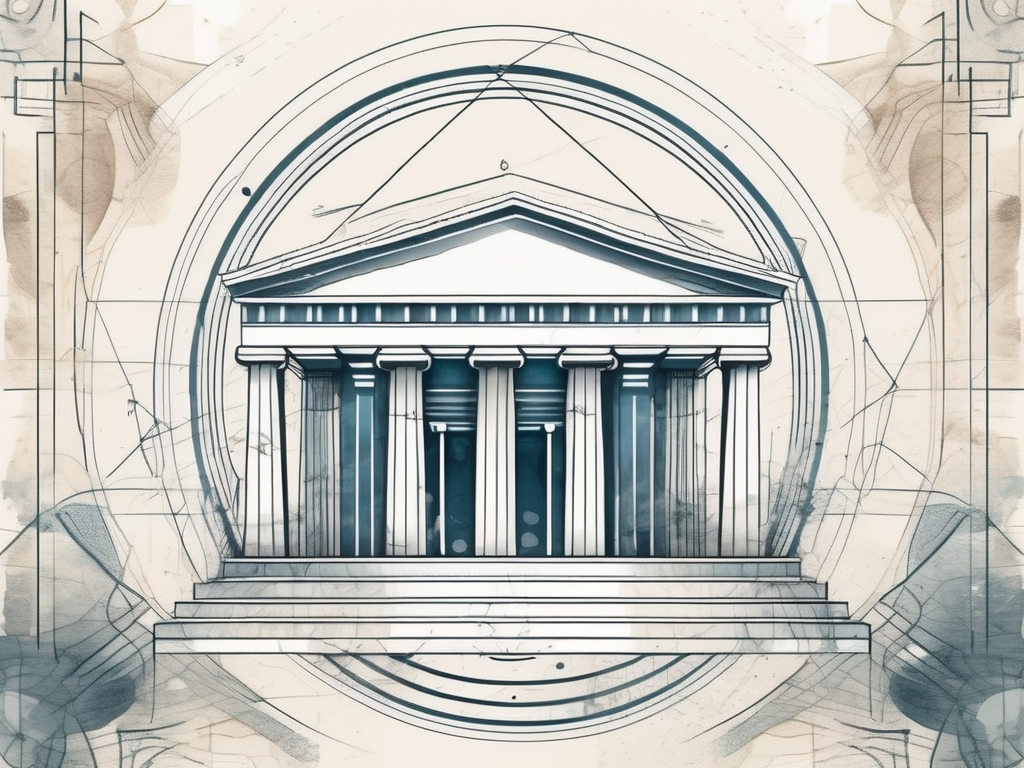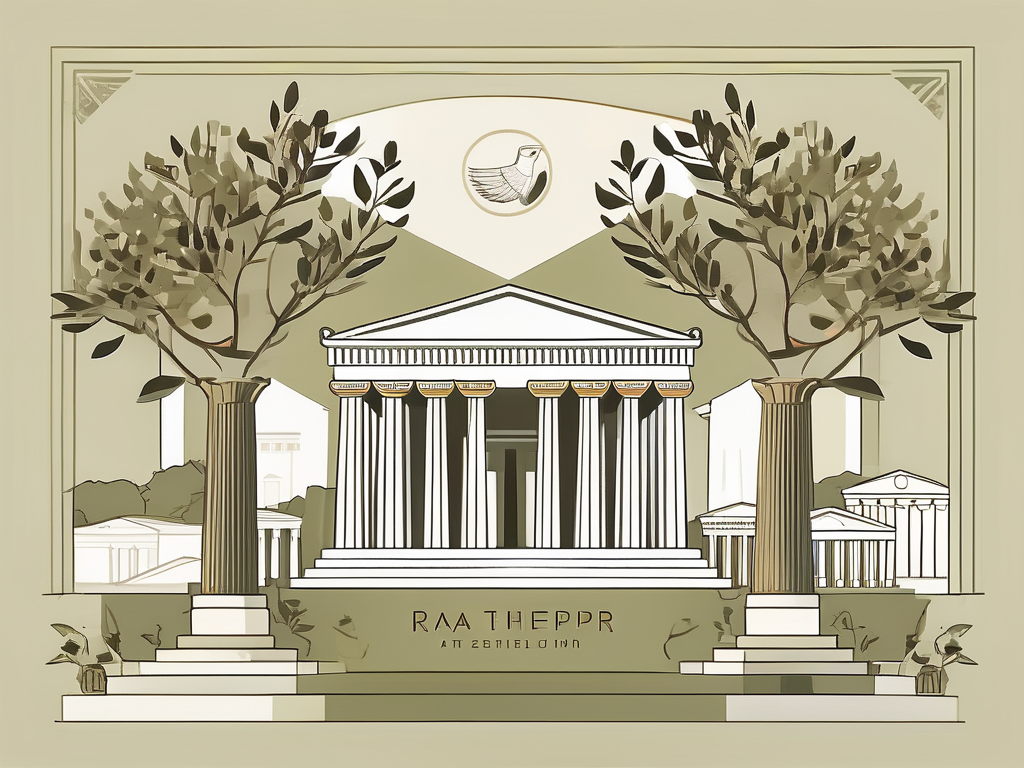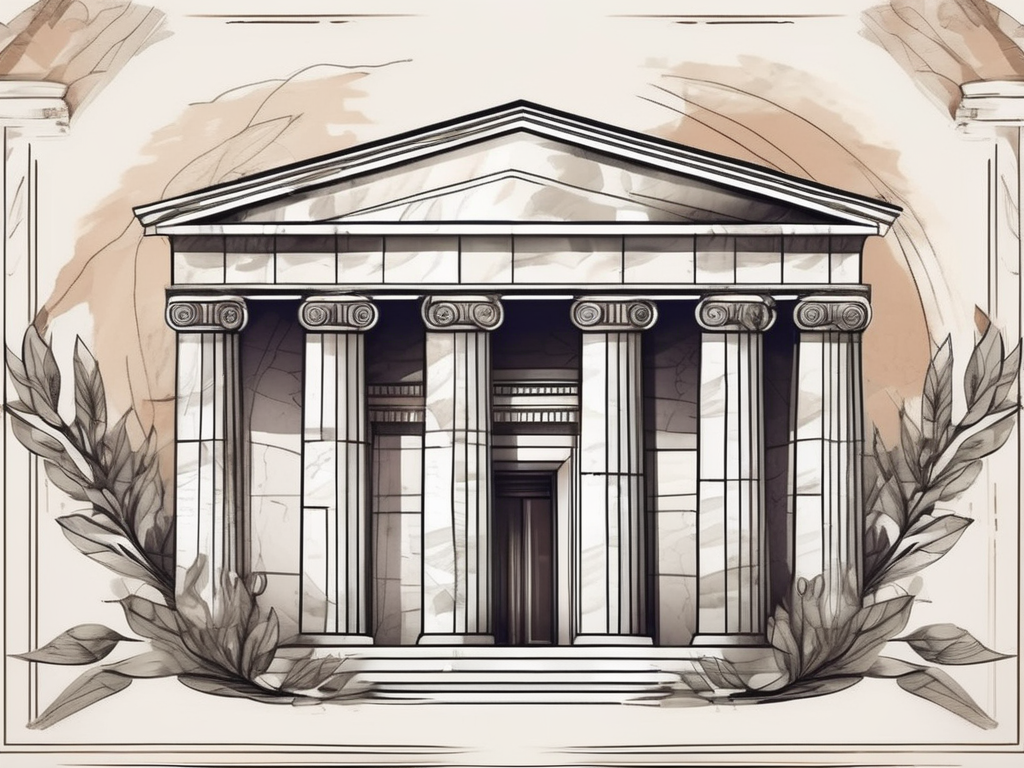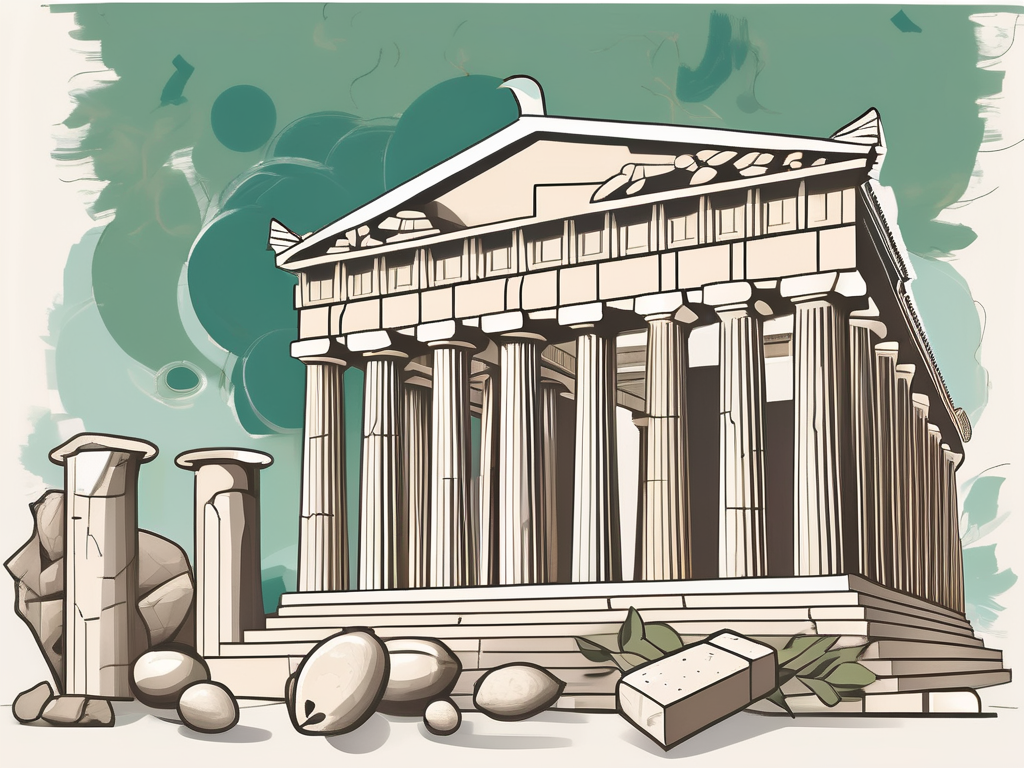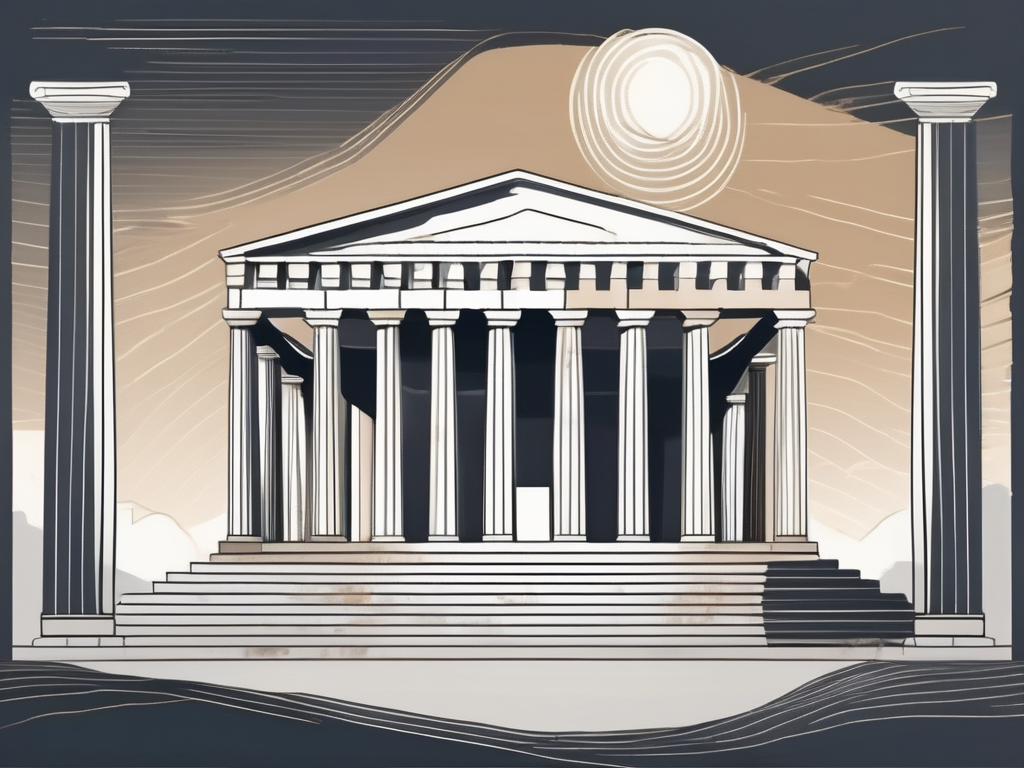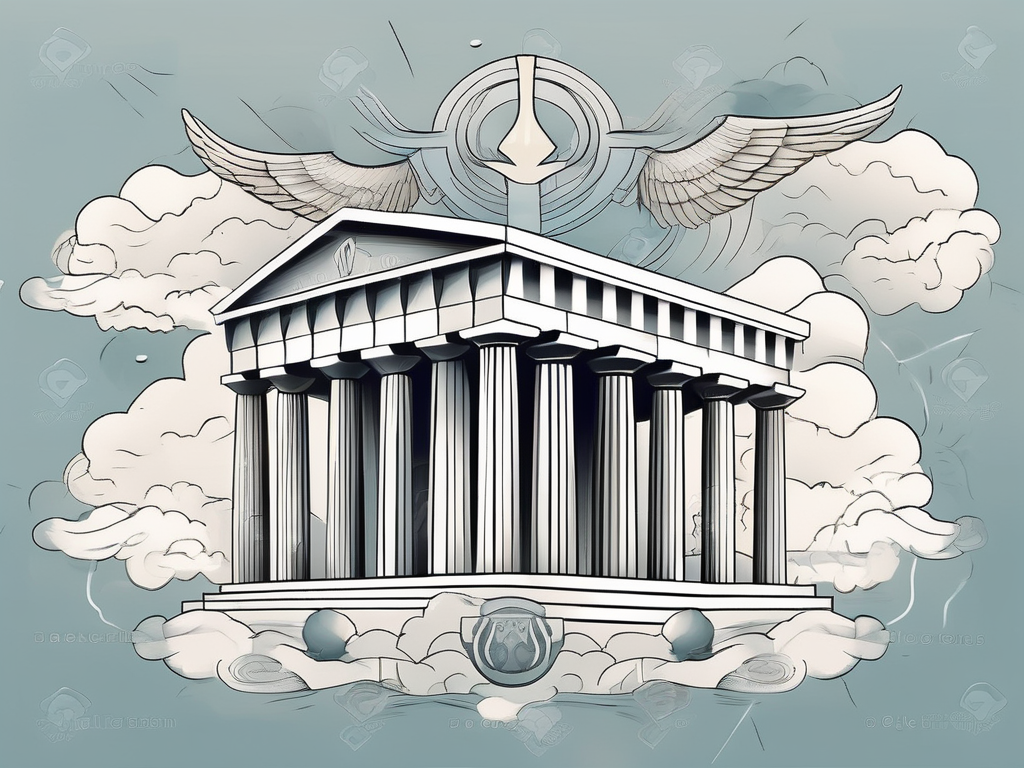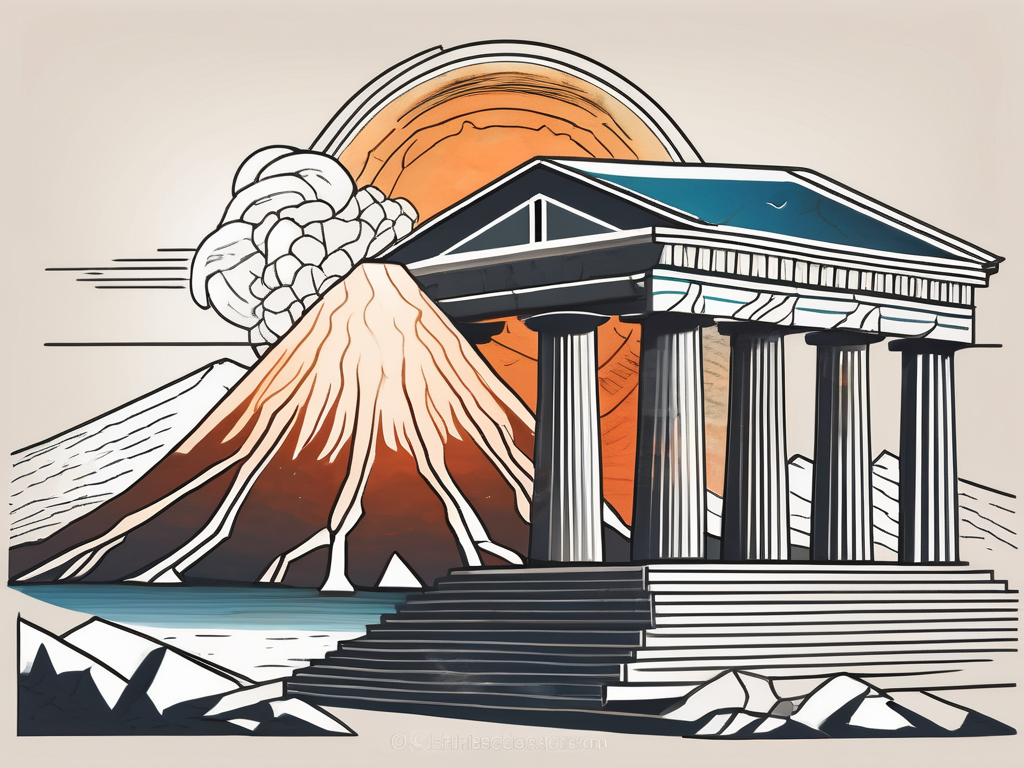Metrodorus of Lampsacus was a prominent philosopher in ancient Greece, known for his contributions to the school of Epicureanism. Born in Lampsacus, a city in Asia Minor, Metrodorus led a fascinating life filled with intellectual pursuits and philosophical debates. In this article, we will delve into his early life, his relationship with his mentor Epicurus, his written works, and the criticisms and controversies surrounding his philosophy.
Early Life and Education of Metrodorus
Metrodorus came from a distinguished family background, which shaped his worldview from an early age. His parents were followers of the philosopher Democritus, known for his atomic theory. The household was brimming with philosophical discussions, fostering Metrodorus’ natural inclination towards intellectual pursuits.
Metrodorus’ childhood was filled with curiosity and a thirst for knowledge. His parents recognized this and ensured that he received a formal philosophical education. They sent him to Lampsacus, where he studied under the guidance of renowned philosophers.
Family Background and Childhood
Metrodorus grew up in a household that prioritized intellectual pursuits. His parents instilled in him a deep appreciation for philosophy, which influenced his later works and ideas. This familial support played a crucial role in shaping his character and bolstering his commitment to philosophical inquiry.
Within the walls of his childhood home, Metrodorus was exposed to a rich tapestry of philosophical ideas. His parents, well-versed in the works of Democritus, engaged in lively debates about the nature of reality, the existence of atoms, and the pursuit of knowledge. These discussions ignited a spark within young Metrodorus, fueling his intellectual curiosity and setting him on a path of philosophical exploration.
As Metrodorus grew older, his parents encouraged him to read and study the works of ancient philosophers. They provided him with a vast library of philosophical texts, allowing him to immerse himself in the wisdom of the ages. From the dialogues of Socrates to the treatises of Plato, Metrodorus devoured these philosophical works, expanding his understanding of the world and deepening his love for wisdom.
Philosophical Education in Lampsacus
In Lampsacus, Metrodorus had the opportunity to study under some of the greatest philosophical minds of his time. Immersed in the vibrant intellectual atmosphere, he honed his critical thinking skills and expanded his knowledge of various philosophical schools of thought.
Under the guidance of his mentors, Metrodorus delved into the teachings of the Stoics, the Peripatetics, and the Cynics. He engaged in rigorous debates and discussions, challenging his own beliefs and broadening his intellectual horizons. The philosophical community in Lampsacus provided a fertile ground for Metrodorus’ intellectual growth, pushing him to question the nature of existence, the purpose of life, and the pursuit of happiness.
The teachings of his mentors served as a foundation for Metrodorus’ later philosophical endeavors. They nurtured his inclination towards the school of Epicureanism, guiding him towards the pursuit of truth and a life of tranquility.
During his time in Lampsacus, Metrodorus also formed deep friendships with fellow philosophers. They would spend hours walking along the shores of the Hellespont, engaging in philosophical discussions and contemplating the mysteries of the universe. These friendships not only enriched Metrodorus’ intellectual journey but also provided him with a sense of camaraderie and support.
As Metrodorus bid farewell to Lampsacus, he carried with him a wealth of knowledge and a burning desire to share his philosophical insights with the world. His early life and education had laid the groundwork for a remarkable philosophical career, one that would leave a lasting impact on the world of ancient philosophy.
Metrodorus and the Epicurean Philosophy
The philosophy of Epicurus was a defining influence in Metrodorus’ life. Epicureanism emphasizes the pursuit of pleasure and the avoidance of pain, both physical and mental. It encourages a minimalist lifestyle, advocating for moderation and the cultivation of friendships for a fulfilling existence.
Metrodorus, a devoted follower of Epicurus, found solace and guidance in the principles of Epicureanism. The philosophy provided him with a roadmap to navigate the complexities of life while prioritizing personal happiness. With a deep understanding of the pursuit of pleasure, Metrodorus embraced the concept of moderation and tranquility as the foundation of his belief system.
Introduction to Epicureanism
Metrodorus embraced the principles of Epicureanism, which resonated deeply with him. The philosophy provided him with a framework to navigate life’s challenges while prioritizing personal happiness. The pursuit of pleasure, understood in the context of moderation and tranquility, became the cornerstone of his belief system.
Epicureanism, as introduced by Epicurus, emphasized the importance of pleasure as the ultimate goal in life. However, it was not a hedonistic pursuit of immediate gratification, but rather a thoughtful and deliberate approach to finding contentment. Metrodorus understood that true pleasure could only be achieved through moderation, avoiding excesses that could lead to pain and dissatisfaction.
Furthermore, Epicureanism highlighted the significance of mental well-being in the pursuit of pleasure. Metrodorus recognized the importance of cultivating a peaceful mind, free from unnecessary worries and anxieties. By focusing on the present moment and finding joy in simple pleasures, he aimed to create a fulfilling and meaningful existence.
Contributions to Epicurean Thought
Metrodorus made significant contributions to the development of Epicurean thought. His writings and teachings expanded upon Epicurus’ ideas, delving deeper into the nature of pleasure, the importance of friendship, and the pursuit of wisdom. His works continue to be studied and appreciated by scholars today.
Metrodorus’ exploration of pleasure went beyond the superficial understanding of immediate gratification. He delved into the nuances of different types of pleasures, recognizing that some bring temporary satisfaction while others contribute to long-term well-being. Through his writings, he encouraged individuals to seek out pleasures that nourish the soul and promote personal growth.
Friendship, according to Metrodorus, played a crucial role in the pursuit of pleasure. He emphasized the value of genuine and meaningful connections with others, as they provide support, companionship, and shared experiences. Metrodorus believed that cultivating strong friendships not only enhances personal happiness but also contributes to the overall well-being of society.
Wisdom, in Metrodorus’ philosophy, was seen as a means to achieve a deeper understanding of oneself and the world. He believed that by continuously seeking knowledge and reflecting on one’s experiences, individuals could attain a higher level of fulfillment. Metrodorus encouraged the pursuit of wisdom as a lifelong journey, one that brings clarity and purpose to one’s existence.
Metrodorus’ contributions to Epicurean thought continue to inspire and influence philosophical discourse. His insights into pleasure, friendship, and wisdom offer a profound understanding of how to live a fulfilling and meaningful life. Through his writings and teachings, Metrodorus left a lasting legacy that continues to shape the way we approach happiness and well-being.
Metrodorus’ Relationship with Epicurus
Metrodorus formed a deep and lasting bond with his mentor, Epicurus. Their friendship was not only characterized by intellectual collaboration but also genuine admiration and respect for one another.
Their relationship extended beyond the realm of philosophy. They shared a common love for nature and often took long walks together, discussing their ideas amidst the serene beauty of the countryside. These walks provided them with a peaceful and contemplative environment, allowing their thoughts to flow freely and inspiring new insights.
Epicurus recognized Metrodorus’ intellect and potential, fostering a close bond between the two philosophers. They engaged in countless discussions, refining their ideas and challenging each other’s viewpoints. Their camaraderie undoubtedly played a significant role in their respective philosophical developments.
During their conversations, Metrodorus often brought a fresh perspective to the table, challenging Epicurus’ established beliefs. This intellectual friction fueled their growth as thinkers and encouraged them to delve deeper into the intricacies of their philosophical inquiries.
Friendship and Collaboration
Friendship was at the core of their relationship. Beyond their philosophical pursuits, Epicurus and Metrodorus shared a genuine affection for one another. They supported each other through personal hardships and celebrated each other’s successes.
They often gathered with a small group of like-minded individuals, engaging in lively debates and exchanging ideas. These gatherings were not only intellectual exercises but also opportunities for friendship and camaraderie. The bonds they formed with their peers further enriched their philosophical explorations.
Together, Epicurus and Metrodorus embarked on a journey of intellectual discovery, constantly pushing the boundaries of their knowledge. They collaborated on various written works, exchanging drafts and providing feedback to one another. This collaborative process allowed them to refine their ideas and present a more cohesive philosophical framework.
Differences and Debates
Although close, Epicurus and Metrodorus did not always see eye to eye. They engaged in healthy debates and discussions, which further enriched their philosophies. These debates fostered intellectual growth and contributed to the broader Epicurean tradition.
One of the areas where they diverged was their understanding of pleasure. While Epicurus emphasized the pursuit of simple pleasures and the avoidance of pain, Metrodorus believed that a more nuanced approach was necessary. He argued that certain higher pleasures, such as intellectual stimulation and aesthetic appreciation, were equally important in leading a fulfilling life.
These differences in perspective led to spirited debates between the two philosophers. They would spend hours dissecting their arguments, analyzing each other’s reasoning, and searching for common ground. These debates not only sharpened their critical thinking skills but also helped them refine their own philosophical positions.
Despite their occasional disagreements, Epicurus and Metrodorus maintained a deep respect for one another. They recognized the value of diverse viewpoints and saw their debates as opportunities for growth rather than sources of conflict.
Their relationship serves as a testament to the power of intellectual collaboration and the enduring impact of genuine friendship. Metrodorus’ bond with Epicurus not only shaped his own philosophical journey but also contributed to the broader Epicurean tradition, leaving a lasting legacy in the world of philosophy.
Metrodorus’ Written Works
Metrodorus’ writings showcase his exceptional intellect and philosophical acumen. His works provide insightful perspectives and shed light on various aspects of Epicurean philosophy.
Overview of His Writings
Metrodorus wrote extensively on a wide range of topics, including ethics, pleasure, and the pursuit of wisdom. His writings provide a comprehensive understanding of Epicureanism and its applicability to everyday life.
Impact and Influence of His Works
Metrodorus’ writings had a profound impact on subsequent generations of philosophers. His ideas inspired and influenced countless thinkers, further disseminating the principles of Epicureanism and its enduring relevance.
Criticisms and Controversies
Like many philosophers, Metrodorus faced criticisms and controversies surrounding his philosophy. His ideas challenged prevailing beliefs and sometimes clashed with other schools of thought.
Criticisms from Contemporary Philosophers
Metrodorus’ ideas, while widely respected, were not without their detractors. Other prominent philosophers held differing views and offered counterarguments to his beliefs. These criticisms helped stimulate intellectual discourse and further refine philosophical thought.
Controversies Surrounding His Philosophy
Certain aspects of Metrodorus’ philosophy engendered controversies and debates. Some critics questioned the emphasis on pleasure and raised concerns about potential excesses or moral relativism. These controversies added depth to the ongoing philosophical dialogue.
In conclusion, Metrodorus of Lampsacus stands as a significant figure in the history of philosophy. His contributions to Epicurean thought, along with his intellectual collaborations and written works, solidified his place among the great thinkers of his time. Despite facing criticisms and controversies, Metrodorus’ ideas continue to inspire intellectual discourse, demonstrating the enduring relevance of his philosophy.
